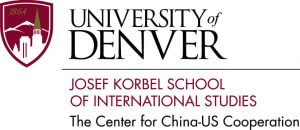The Way Forward
building bridges for the heartland
a webinar series
Given the recent developments around climate change collaboration between the U.S. and China, we will gather top experts from both countries to explore – what next? Can the U.S. and China collaborate?
Panelist
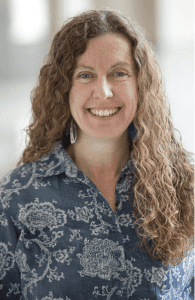
Jennifer L. Turner
Director, China Environment Forum & Manager at the Woodrow Wilson Center, Global Choke Point Initiative
Jennifer L. Turner
Director, China Environment Forum & Manager at the Woodrow Wilson Center, Global Choke Point Initiative
Jennifer Turner has been the director of the China Environment Forum at the Woodrow Wilson Center for 18 years where she creates meetings, exchanges and publications focusing on a variety of energy and environmental challenges facing China, particularly on water, energy and green civil society issues. She leads the Wilson Center’s Global Choke Point Initiative, which together with Circle of Blue, has produced multimedia reports, films, and convening on water-energy-food confrontations in China, India, Mexico, South Africa, and the United States. Other major initiatives include: Cooperative Competitors: Building U.S.-China Clean Energy Partnerships, From Farm to Chopsticks: Food Safety Challenges in China, and Storytelling is Serious Business Workshops For Chinese Environmental Professionals. Jennifer also serves as editor of the Wilson Center’s journal, the China Environment Series and most recently coauthored China’s Water-Energy-Food Roadmap. She received a Ph.D. in Public Policy and Comparative Politics in 1997 from Indiana University, Bloomington. Her dissertation examined local government innovation in implementing water policies in China.
Panelist
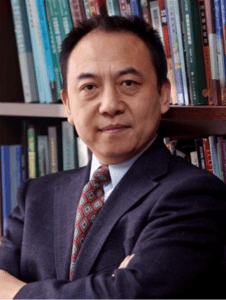
Qi Ye 齐晔
Distinguished Professor of Environmental Policy and Management, Tsinghua University, Director of Institute of Public Policy
Qi Ye 齐晔
Dr. Ye Qi is Distinguished Professor of Environmental Policy and Management at Tsinghua University School of Public Policy and Management since 2004. Before he joined Tsinghua, he was Cheung Kong Chair Professor of Environmental Science at Beijing Normal University. Taking the special endowed professorship, Dr. Qi returned to China in 2003 from University of California, Berkeley where he taught ecosystem management, forest management, and climate change science at Department of Environmental Science, Policy and Management from 1996 through 2003. Dr. Qi received his Ph.D. in Environmental Science in 1994 from State University of New York College of Environmental Science and Forestry and Syracuse University in US. Recipient of NOAA Postdoctoral Fellowship Award (1994, Climate and Global Change) and NSF Fellowship (1995, Computer and Information Science), Dr. Qi worked with Dr. Charles D. Keeling on Climate Change at the Scripps Institution of Oceanography, University of California, San Diego, before joining the faculty at the Theory Center of Cornell University. Ye Qi studied agriculture, ecology and economics from Hebei Agricultural University (BS), the Chinese Academy of Agricultural Sciences (MS) and the Chinese Academy of Sciences (PHD).
Dr. Qi’s research areas include climate change impacts on ecosystems and biodiversity, global and regional carbon cycling, environmental and resource policy for sustainable development, and ecosystem management. He publishes extensively on and serves as reviewers for a number of international journals including Science, Ecology, Ecological Modeling, Landscape Ecology, Climate Research, Critical Review in Plant Science, Global Change Biology, Global Biogeochemical Cycle, Tree Physiology, Canadian Journal of Forest Research, Agricultural and Forest Meteorology, Geographic Information Sciences, and Science in China.
Dr. Qi lead numerous research projects with awards in research grants from NSF, NASA, DOE, NOAA, USDA, Ministry of Science and Technology of China, Ministry of Education of China. His public services include those in academic community through societies and associations such as American Association for Advancement of Science, Ecological Society of America, American Geophysical Union, and through academic journals. He also serves as consultant and adviser to governments, NGO’s and international organizations. He provided services to NSF as panelist, USDA, USDOE, California Energy Commission, Ministry of Science and Technology of China, National Development and Reform Commission of China, the World Bank, European Union 6th and 7th Framework, Winrock International, and the Nature Conservancy.
Panelist
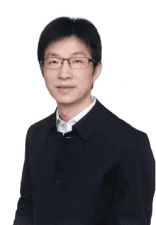
Yongsheng Zhang 张永生
Director General and Research Fellow of the Research Institute for Eco-Civilization of Chinese Academy of Social Sciences
Yongsheng Zhang 张永生
Professor/Dr. Yongsheng Zhang is Senior Research Fellow and Director General of Research Institute for Eco-Civilization (RIEco) at Chinese Academy of Social Sciences (CASS). Prior to joining CASS in 2019, he was the Chief Expert on Green Development, Senior Research Fellow at Development Research Center(DRC) of the State Council of P.R. China. He is a Special Advisor of China Council for International Cooperation on Environment and Development (CCICED) . His research is mainly focused on ecological civilization, environmental & ecological economics, green development, and Chinese economy.
In recent years, he has been doing systematic theoretic and policy research on green development in the perspective of redefining development and exploring its new policy implications for environment and development. He also conducted natural green development experiments in less developed regions for achieving leapfrog development through green transformation. He is also the author of numerous policy reports, including “The New Era of Green Development: China’s Transition to 2050”, a flagship report of CCICED, and “Seizing the Opportunity of Green Development in China”, a pillar report of the joint project between DRC and the World Bank “China 2030”.
Panelist
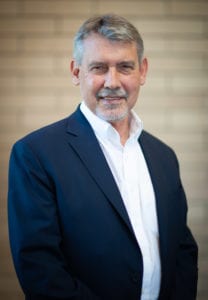
Frederick Mayer
Dean of the Josef Korbel School of International Studies at the University of Denver
Frederick Mayer
Frederick "Fritz" Mayer is Dean of the Josef Korbel School of International Studies at the University of Denver. The Korbel School is one of the world’s leading schools of international affairs. It offers two undergraduate majors, seven master’s degrees, a PhD in international affairs, and numerous specialized certificates, and houses several institutes and centers.
Since he began as Dean of the Korbel School in July 2019, Mayer has led efforts to launch a new Master’s of Public Policy degree and the Scrivner Institute of Public Policy, establish of a new MA degree and research program in Global Environmental Sustainability, create a new Institute for Comparative and Regional Studies, orient the school’s research and teaching towards engagement with the great issues facing the world today, and prioritize diversity and inclusion in recruiting of faculty, staff and students, in the curriculum and in the culture of the Korbel School.
Mayer’s research addresses globalization and its effects, with particular emphasis on the labor and environmental impacts of economic integration. His widely cited book Interpreting NAFTA: The Art and Science of Political Analysis (Columbia University Press, 1998) explored the political processes that created NAFTA. His more recent work has focused on the international development policy implications of a global economy dominated by global value chains, in which a relatively few large firms enjoy considerable power in defining the terms of trade.
Mayer also has a long interest in the role of stories in politics and society. His book Narrative Politics: Stories and Collective Action (Oxford University Press, 2014) makes the case that shared stories are essential tools for enabling communities to overcome free riding and other obstacles to collective action.
Prior to his appointment at Denver, Mayer was Professor of Public Policy, Political Science, and Environment and Associate Dean for Strategy and Engagement at Duke University’s Terry Sanford School of Public Policy. Over three decades Mayer taught more than 3000 Duke students in courses on policy analysis, the political economy of public policy, globalization, political analysis, public opinion, and leadership, among others.
In addition to his academic experience, Mayer served as senior international trade and foreign policy advisor to former U. S. Senator Bill Bradley from 1992 to 1993. In previous stints in Washington, Mayer served as an aide to Congressman Sander Levin, as a policy analyst at the U.S. Environment Protection Agency, and as editor at the Close Up Foundation, an educational non-profit organization.
Mayer received an A.B. in history and literature from Harvard College, and an M.P.P. and a Ph.D. in Public Policy, both from the John F. Kennedy School of Government at Harvard University.
Moderator
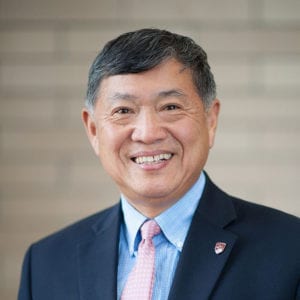
Suisheng Zhao 赵穗生
Professor and Director of the Center for China-US Cooperation at Josef Korbel School of International Studies, University of Denver.
Suisheng Zhao
Suisheng Zhao is Professor and Director of the Center for China-US Cooperation at Josef Korbel School of International Studies, University of Denver. A member of the Board of Governors of the US Committee of the Council for Security Cooperation in the Asia Pacific, a member of National Committee on US-China Relations, a Campbell National Fellow at Hoover Institution of Stanford University, and a Research Associate at the Fairbanks Center for East Asian Research in Harvard University, he is the founder and chief editor of the Journal of Contemporary China. He received his Ph.D. degree in political science from the University of California-San Diego, M.A. degree in Sociology from the University of Missouri and BA and M.A. degrees in economics from Peking University, and was Associate Professor of Political Science and International Studies at Washington College in Maryland, Associate Professor of Government and East Asian Politics at Colby College in Maine and visiting assistant professor at the Graduate School of International Relations and Pacific Studies (IR/PS) at University of California-San Diego.
He is the author and editor of more than a dozen of books, including Debating Regime Legitimacy in Contemporary China: Popular Protests and Regime Performance (2017); The Making of China’s Foreign Policy in the 21st Century, Historical Sources, Institutions/Players, and Perceptions of Power Relations (2016); China in Africa: Strategic Motives and Economic Interests (2015): the Construction of Chinese Nationalism in the Early 21st Century: Domestic sources and International Implications (2014); The Rise of China and Transformation of the US-China Relationship: Forging Partnership in the Age of Strategic Mistrust, (2013); China’s Search for Energy Security: Domestic Sources and International Implications(2012); China and East Asian Regionalism: Economic and Security Cooperation and Institution-Building (2012), In Search of China’s Development Model: Beyond the Beijing Consensus, (2011), Village Elections in China (2010), China and the United States, Cooperation and Competition in Northeast Asia (2008), China-US Relations Transformed: Perspectives and Strategic Interactions (2008), Debating Political Reform in China: Rule of Law versus Democratization (2006), A Nation-State by Construction: Dynamics of Modern Chinese Nationalism (2004), Chinese Foreign Policy: Pragmatism and Strategic Behavior (2003), China and Democracy: Reconsidering the Prospects for a Democratic China(2000), Across the Taiwan Strait: Mainland China, Taiwan, and the Crisis of 1995-96 (1999). His articles have appeared in Political Science Quarterly, The Wilson Quarterly, Washington Quarterly, International Politik,The Hague Journal of Democracy, European Financial Review, The China Quarterly, World Affairs, Asian Survey, Asian Affairs, Journal of Democracy, Pacific Affairs, Communism and Post-Communism Studies, Problems of Post-Communism, and elsewhere.
Panelist

Yongsheng Zhang 张永生
Director General and Research Fellow of the Research Institute for Eco-Civilization of Chinese Academy of Social Sciences
Yongsheng Zhang 张永生
Professor/Dr. Yongsheng Zhang is Senior Research Fellow and Director General of Research Institute for Eco-Civilization (RIEco) at Chinese Academy of Social Sciences (CASS). Prior to joining CASS in 2019, he was the Chief Expert on Green Development, Senior Research Fellow at Development Research Center(DRC) of the State Council of P.R. China. He is a Special Advisor of China Council for International Cooperation on Environment and Development (CCICED) . His research is mainly focused on ecological civilization, environmental & ecological economics, green development, and Chinese economy.
In recent years, he has been doing systematic theoretic and policy research on green development in the perspective of redefining development and exploring its new policy implications for environment and development. He also conducted natural green development experiments in less developed regions for achieving leapfrog development through green transformation. He is also the author of numerous policy reports, including “The New Era of Green Development: China’s Transition to 2050”, a flagship report of CCICED, and “Seizing the Opportunity of Green Development in China”, a pillar report of the joint project between DRC and the World Bank “China 2030”.



